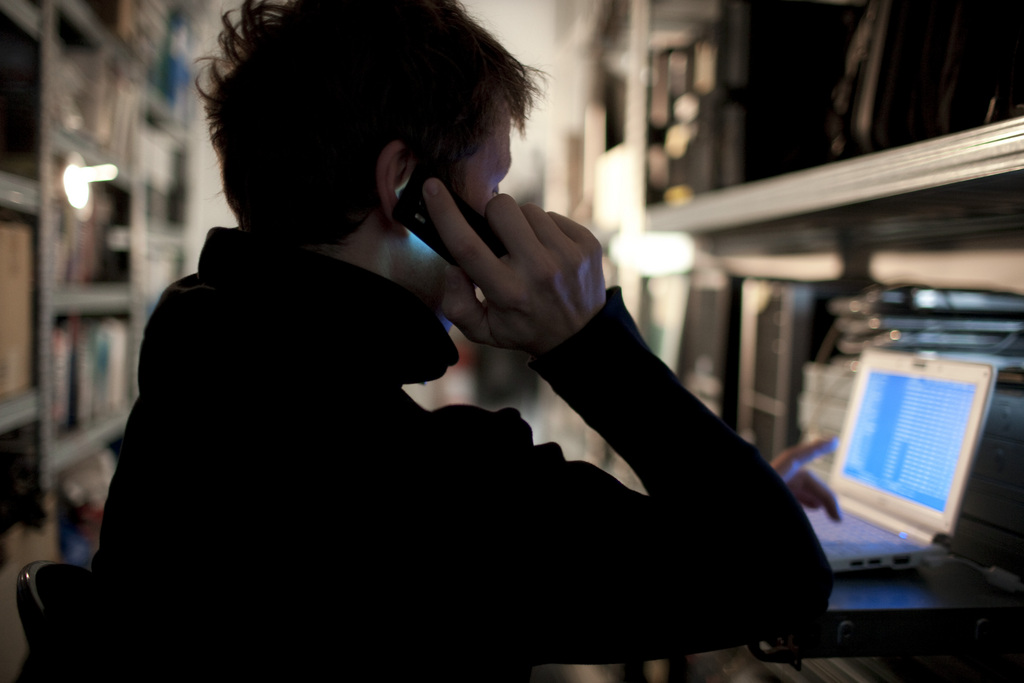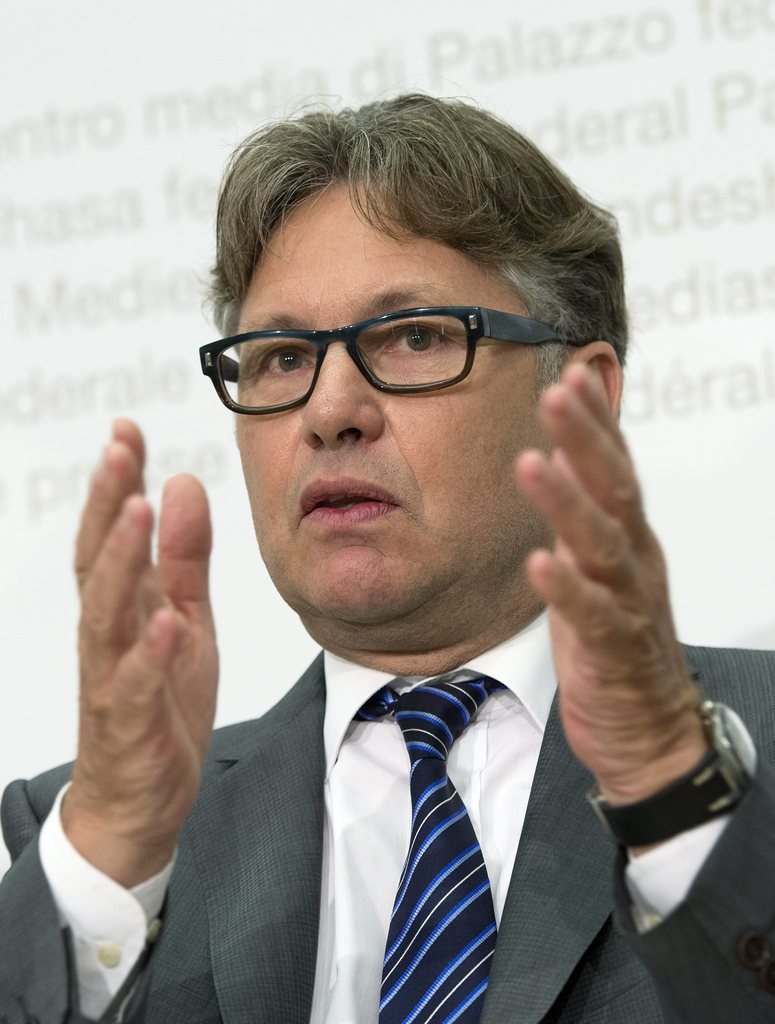
Swiss ‘must tighten’ privacy laws after NSA saga

Switzerland’s data protection commissioner Hanspeter Thür says that in the wake of the US spying scandal Switzerland and Europe must strengthen privacy laws and give clearer guidelines to multinationals wanting to work in the alpine nation.
Revelations from former National Security Agency (NSA) contractor Edward Snowden about the extent of eavesdropping by the US agency, Britain’s GCHQ and partners continue to cause outrage in Europe. They have also sparked a global debate over privacy and the limits of spying.
Switzerland has also been pulled into the controversy (see infobox). The cabinet has widened an investigation into alleged US spying activities in the alpine nation. Question marks have been raised over possible cooperation between Switzerland and the NSA. But Defence Minister Ueli Maurer says the Swiss government has never had any contact with the NSA and denies speculation that Switzerland had exchanged data with the agency.

swissinfo.ch: What concerns you most about the NSA leaks?
Hanspeter Thür: Naturally the extensive, almost global coverage of all means of communication, such as telephone and email.
The other thing is, it’s not just about the US authorities, but it’s been shown that other foreign intelligence services operate with similar means. And in this respect it’s very alarming that there is a widespread use of technical means which are becoming more sophisticated to spy on citizens worldwide.
June: Former NSA employee turned whistleblower Edward Snowden claimed in media interviews that he worked for the CIA in Geneva in 2007 under the guise of a diplomat. It was here, he said, that he first encountered the scale of the snooping operation. He also described how the CIA recruited a Geneva banker by purposely getting him drunk and then helping him after he was arrested whilst driving.
June: The Swiss government sought explanations from Washington about alleged snooping on Swiss soil. It was assured at the time that the US had respected Swiss laws.
September: The government publically condemned any sort of intelligence activities by a foreign service in Switzerland. It ordered the defence ministry to continue its investigation into any spying activities that had taken place in Switzerland with a view to proposing extra security measures.
October: Defence Minister Ueli Maurer said the investigation was still under way. Maurer, who also holds the post of Swiss president this year, added that the Swiss government had never had any contact with the NSA. He denied speculation that Switzerland had exchanged data with the agency. However, he said Switzerland was cooperating with the US in the fight against terrorism.
October: Spain’s El Mundo newspaper published new documents based on leaks by former NSA contractor Edward Snowden which the paper said showed that Spain and other countries cooperated with the NSA in the spying. In the NSA document seen by El Mundo, the US classifies cooperation with various countries on four different levels. In the first group – “Comprehensive Cooperation” – are Britain, Australia, Canada and New Zealand. The second group – “Focused Cooperation” – has 19 countries including Switzerland. A defence ministry spokesman declared the document could not be verified.
The Swiss government is facing calls from parliamentarians to lodge a formal protest with the US authorities or seek political measures in response to the alleged spying activities. It has widened its investigation to other government departments.
swissinfo.ch: Last month Spain’s El Mundo newspaper said the NSA, with help from Spanish intelligence services, had spied on 60 million phone calls of Spanish citizens in a month. This follows similar reports in France, Germany and Italy. Do you fear similar headlines in Switzerland?
H.T.: I can’t rule that out. But I really don’t know. What we do know is that the secret services work together, but I would be astonished if Swiss intelligence services did not practise this level of cooperation with the NSA.
It’s clear that secret services work together. The question is what exactly they exchange, and whether the Swiss intelligence services did something illegal in these exchanges, or whether they acted within the framework of Swiss laws. I don’t know. That must be checked by the parliamentary commission responsible for overseeing the intelligence services.
Secret services have always done what was possible and not paid much attention to what they’re allowed to do as long as they didn’t get caught.
swissinfo.ch: In the October edition of the Schweizer Monat magazine you wrote you were surprised that politicians and citizens remain largely indifferent to the spying scandal. Why is that?
H.T.: I’m not sure what is going on, whether there is a kind of paralysis in the face of our impotence to do anything to counter what’s going on or whether it’s just indifference. But at the citizen level there are relatively few initiatives.
Even if citizen Joe Bloggs is perhaps not so interesting for the intelligence services, we’re living in a democracy, and we should be interested in whether business or political leaders are being spied on. It’s possible that the democratic system that we have in Switzerland could be undermined by what’s going on.
What’s going on creates uncertainty, especially in business circles but also in the administration and among politicians. What is still possible? What should one do or not do?
Perhaps the whole thing is just too abstract and distant from our daily lives, to learn that Chancellor Merkel’s phone is being bugged. And perhaps people haven’t thought about all the consequences and what this really means. So I wouldn’t rule out a reaction from citizens later on.
Switzerland’s data protection commissioner Hanspeter Thür told Swiss national radio that the Snowden revelations had caused Swiss firms to change their behaviour and become more careful of protecting data. Some had held crisis meetings and others had even blocked USB computer ports to prevent data theft, he told SRF radio on November 8.
In an interview published on November 7 in the St Galler Tagblatt and the Neue Luzerner Zeitung newspapers, Swiss Foreign Minister Didier Burkhalter said he was “not surprised” by the extent of US spying. He rejected calls from Swiss parliamentarians to offer former NSA whistleblower Edward Snowden asylum in Switzerland.
But he said Switzerland should strengthen its national strategy to prevent International Geneva from undergoing cyber-attacks. At the end of October the German Der Spiegel magazine claimed the US embassy in Geneva housed a powerful joint NSA-CIA electronic monitoring station. Burkhalter refused to confirm or deny the information.
swissinfo.ch: The Europeans have said they will insist that on-going trade talks with the US include stronger rules for protecting data. The EU has a number of options, including suspending the US-EU Safe Harbour privacy agreement, or demanding that the US enact more powerful data protection laws that include substantial fines for companies that don’t keep data safe. What is the best approach for protecting data in the future?
H.T.: We have also considered revoking the Safe Harbour agreement. In simple terms it means firms would have fewer guidelines, in order to make data exchange with the US possible. We are skeptical whether this is a good idea. What we should do in Switzerland and Europe is to tighten up our laws and set clearer guidelines that multinationals must stick to if they want to be active here.
Switzerland is a small country and not a member of the EU, so we have to rely on the fact that [negotiations] are happening in a European context and we should try to keep at the same pace to do what is possible in Europe and hope that these steps concerning the US can be implemented.
And if the EU decides to tighten up its data protection laws, although it is not clear how fast that will happen or how significant they may be, then it will have consequences for Switzerland… we will have to make sure ours are in conformity.
swissinfo.ch: Don’t you think individual privacy is looking more and more like a thing of the past?
H.T.: Technological development – and this [NSA spying] example has emphatically shown that – creates a large danger for our private sphere. The question is whether we will manage within our free democratic societies to control these kinds of technologies so we can prevent mischief.
It’s all about controlling the use of these technologies, and this must be dealt with at different levels. I’ve spoken about personal responsibility, but there also has to be a legal framework and sanctions in place that clearly lay out what happens when violations of data protection occur. Today breaking data protection law is a trivial offence. People simply close their eyes.

In compliance with the JTI standards
More: SWI swissinfo.ch certified by the Journalism Trust Initiative






























You can find an overview of ongoing debates with our journalists here . Please join us!
If you want to start a conversation about a topic raised in this article or want to report factual errors, email us at english@swissinfo.ch.